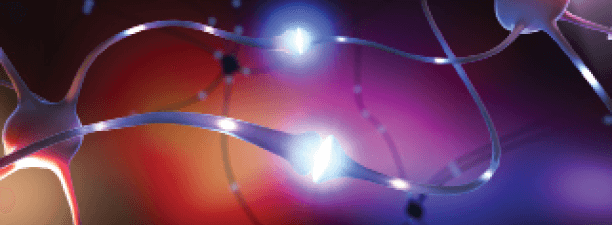

“We think that the point is to pass the test or to overcome the problems, but the truth is that things don't really get solved. They come together and they fall apart. Then they come together again and fall apart again. It's just like that. The healing comes from letting there be room for all this to happen: room for grief, for relief, for misery, for joy.”
— Pema Chodron
What Is Mindfulness Meditation Training?
Mindfulness meditation training teaches you to allow and witness what is happening in the moment without judgment – a skill you can incorporate into your daily life. Accepting and making space for difficult thoughts will help you disengage from unhelpful ruminations. Likewise, calm awareness of physical sensations can help you accept discomfort or appreciate feeling healthy. Part of living is experiencing pain, suffering, and obstacles; however, as you learn to allow, attend to, integrate, and release, you begin to transform. The awareness you develop through mindfulness meditation training makes it easier to let go of what no longer serves you. Our guided contemplative practices focus on cultivating loving kindness, self-acceptance, joy, connection to self and others, and wishing oneself well. Hills carefully selects the practices based on your individual needs to reduce symptoms, increase connection, and overall wellbeing.
HOW IT WORKS


HOW MINDFULNESS MEDITATION TRAINING WORKS
Mindfulness meditation training incorporates a variety of techniques to practice being in the present moment accepting, attending, and letting go. The act of meditation teaches you to allow your thoughts, feelings, and physical sensations and explore them with curiosity. Learn to embrace what is happening in the present moment without judgment. You will be guided through specific mindfulness practices and contemplative exercises that focus on meeting your goals. For example, if you experienced trauma, you might hold this within the body, causing physical and emotional pain and dysregulation. You practice mindfulness skills to ground yourself in the now, release tensions in the body, regulate centers in the brain that are stuck in a fear response, and contemplate love and compassion for self. The practice of mindfulness frees us from the confines of the past and worry of the future and grounds us in the present.


A type of mindfulness practice involves focusing on muscle tension and relaxation. Increasing awareness of how the tension feels in your body and practicing releasing the tension helps prevent pain and the activity of your sympathetic nervous system. It also sends soothing messages to your brain that you are safe and no longer need to be ready for action.
MINDFULNESS CULTIVATES SKILLS OF BEING IN THE PRESENT MOMENT:
OBSERVING:
Attending to internal and external stimuli.
DESCRIBING:
Labeling your experience with words.
ACTING WITH AWARENESS:
Choosing an action to take instead of acting automatically.
NONJUDGMENTAL STANCE:
Letting go of the impulse to evaluate your internal experience.
NONREACTIVITY TO INTERNAL EXPERIENCE:
Allowing your thoughts and feelings to come and go without getting caught up in them.
At Hills Neuroscience, we incorporate biofeedback and neurofeedback into your mindfulness practice. Receiving validation that you are creating a “mindful state” can provide the reinforcement needed to attend to your physiologic responses and optimize your functioning. This feedback process can speed up the rate with which you acquire mindfulness skills.
HOW MINDFULNESS MEDITATION TRAINING HELPS


DID YOU KNOW?
Brain, mind, and body changes observed with mindfulness and contemplative meditations*:
- Increases brain function involved in memory and learning, attention, empathy, compassion, and emotion regulation, including positive mood, decreasing stress hormones and increasing immune function
- Improvement in a myriad of health conditions, including cardiovascular disease, asthma, Type II diabetes, PMS, and chronic pain
- Improvement in psychological symptoms such as insomnia, anxiety, phobias, depression, attention problems, and eating disorders
- Increases gray matter in the insula – empathy, gut responses, compassion
- Hippocampus – learning and memory
- Prefrontal cortex – emotion regulation, positive mood, attention
- Reduces cortical thinning due to aging in prefrontal regions
- Increases left frontal brain activity to increase positive mood
- Decreases stress hormones
- Increases healthy immune system
- Increases areas of the brain involved in social connection
*Hanson, R., & Mendius, R. (2009) Buddha’s brain: The practical neuroscience of happiness, love & wisdom.
At Hills, our mindfulness meditation and contemplative practices increase the calming part of the nervous system, stimulate brain centers, and increase your ability to transform pain and suffering into resilience, connection, and healing. Through practicing present moment awareness, we create new brain connections, thus new relationships with ourselves and others. These practices will guide you to ignite the power of your mind to transcend adversity.
CONDITIONS TREATED
-
TRAUMA & PTSD
-
DEPRESSION
-
ANXIETY
-
CHRONIC PAIN
-
ATTENTION-DEFICIT/HYPERACTIVITY DISORDER (ADHD)
-
SUBSTANCE USE DISORDERS
-
PERFORMANCE ENHANCEMENT
-
TRAUMATIC BRAIN INJURY (TBI)
-
CHRONIC STRESS
-
BURNOUT
-
BIPOLAR DISORDER
-
STROKE & TRANSIENT ISCHEMIC ATTACK (TIA)
-
OBSESSIVE-COMPULSIVE DISORDER (OCD)
ASTHMA
-
MIGRAINE & TENSION-TYPE HEADACHE
HYPERTENSION
-
IRRITABLE BOWEL SYNDROME
-
TEMPOROMANDIBULAR JOINT DISORDER (TMJD)
-
ARTHRITIS
-
CONSTIPATION
-
FIBROMYALGIA
IMMUNE FUNCTION
INSOMNIA
RAYNAUD’S DISEASE
TINNITUS
DISORDERED EATING AND BODY IMAGE, INCLUDING ANOREXIA, BULIMIA, BINGE EATING
Schedule a Free Consultation
Contact us to schedule a free, 15-minute phone consultation to learn more and see if our integrative psychology services are right for you.
